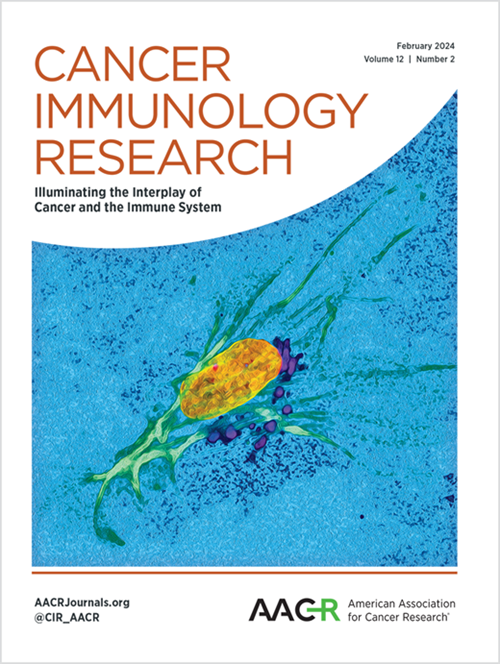The Dark Knight: Functional Reprogramming of Neutrophils in the Pathogenesis of Colitis-Associated Cancer
IF 8.1
1区 医学
Q1 IMMUNOLOGY
引用次数: 0
Abstract
Neutrophils are the primary myeloid cells that are recruited to inflamed tissues, and they are key players during colitis, being also present within the tumor microenvironment during the initiation and growth of colon cancer. Neutrophils fundamentally serve to protect the host against microorganism invasion, but during cancer development, they can become protumoral and lead to tumor initiation, growth, and eventually, metastasis—hence, playing a dichotomic role for the host. Protumoral neutrophils in cancer patients can be immunosuppressive and serve as markers for disease progression but their characteristics are not fully defined. In this review, we explore the current knowledge on how neutrophils in the gut fluctuate between an inflammatory or immunosuppressive state and how they contribute to tumor development. We describe neutrophils’ antitumoral and protumoral effects during inflammatory bowel diseases and highlight their capacity to provoke the advent of inflammation-driven colorectal cancer. We present the functional ambivalence of the neutrophil populations within the colon tumor microenvironment, which can be potentially exploited to establish therapies that will prevent, or even reverse, inflammation-dependent colon cancer incidence in high-risk patients.黑暗骑士中性粒细胞在结肠炎相关癌症发病机制中的功能重编程
中性粒细胞是被招募到发炎组织中的主要髓系细胞,它们是结肠炎期间的关键角色,也存在于结肠癌发生和生长期间的肿瘤微环境中。中性粒细胞的基本作用是保护宿主免受微生物的入侵,但在癌症发展过程中,它们会变成原生中性粒细胞,导致肿瘤的发生、生长和最终转移--因此,中性粒细胞对宿主起着两面性的作用。癌症患者体内的原中性粒细胞可产生免疫抑制作用,并可作为疾病进展的标志物,但其特征尚未完全明确。在这篇综述中,我们探讨了目前关于肠道中性粒细胞如何在炎症或免疫抑制状态之间波动以及它们如何促进肿瘤发展的知识。我们描述了中性粒细胞在炎症性肠道疾病期间的抗肿瘤和原发肿瘤作用,并强调了它们诱发炎症驱动的结直肠癌的能力。我们介绍了中性粒细胞群体在结肠肿瘤微环境中的功能矛盾性,可以利用这种矛盾性建立疗法,预防甚至逆转高危患者中炎症依赖性结肠癌的发病率。
本文章由计算机程序翻译,如有差异,请以英文原文为准。
求助全文
约1分钟内获得全文
求助全文
来源期刊

Cancer immunology research
ONCOLOGY-IMMUNOLOGY
CiteScore
15.60
自引率
1.00%
发文量
260
期刊介绍:
Cancer Immunology Research publishes exceptional original articles showcasing significant breakthroughs across the spectrum of cancer immunology. From fundamental inquiries into host-tumor interactions to developmental therapeutics, early translational studies, and comprehensive analyses of late-stage clinical trials, the journal provides a comprehensive view of the discipline. In addition to original research, the journal features reviews and opinion pieces of broad significance, fostering cross-disciplinary collaboration within the cancer research community. Serving as a premier resource for immunology knowledge in cancer research, the journal drives deeper insights into the host-tumor relationship, potent cancer treatments, and enhanced clinical outcomes.
Key areas of interest include endogenous antitumor immunity, tumor-promoting inflammation, cancer antigens, vaccines, antibodies, cellular therapy, cytokines, immune regulation, immune suppression, immunomodulatory effects of cancer treatment, emerging technologies, and insightful clinical investigations with immunological implications.
 求助内容:
求助内容: 应助结果提醒方式:
应助结果提醒方式:


